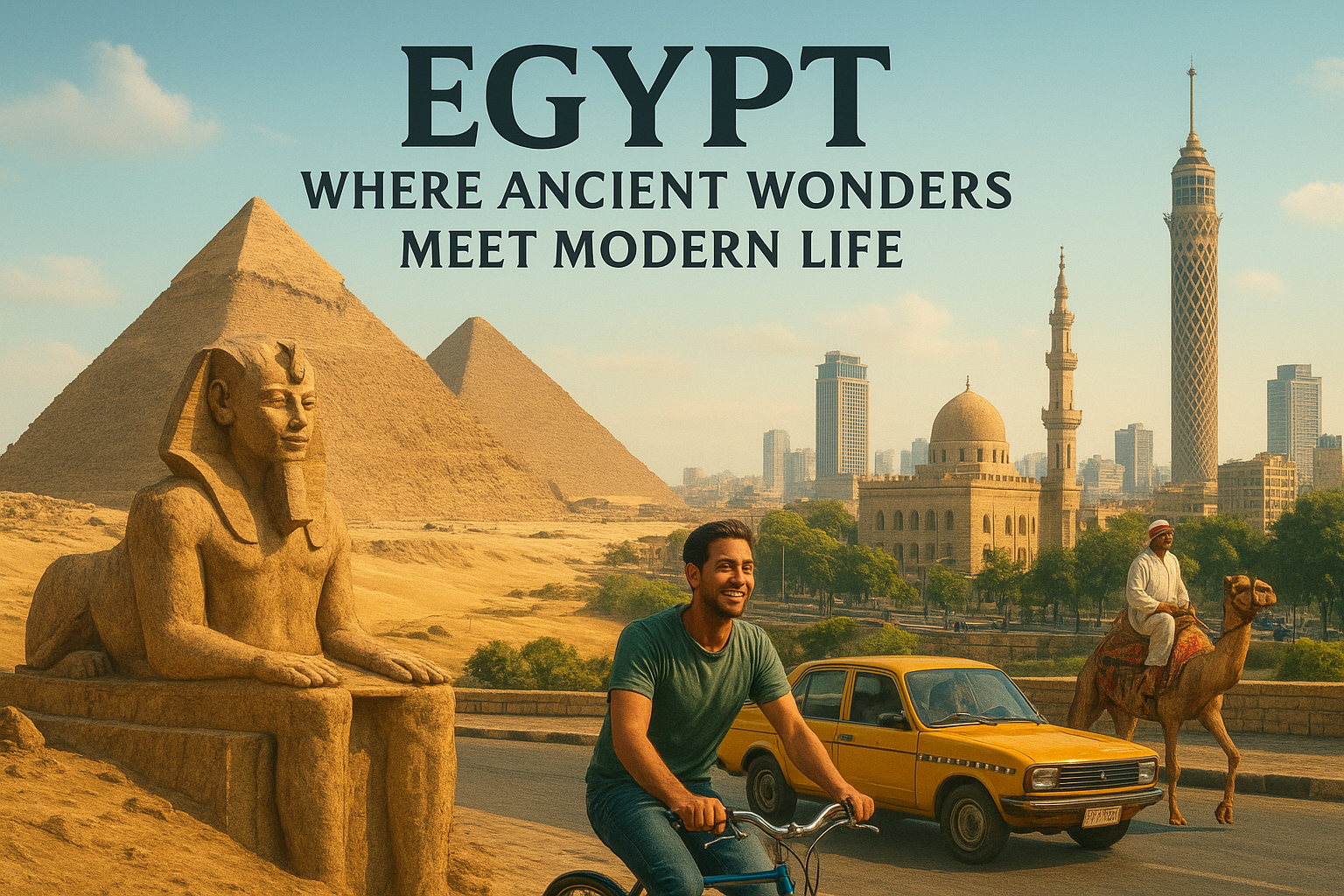Step into a land where time itself seems to bend, where the whispers of pharaohs echo through bustling city streets, and where colossal monuments stand as silent witnesses to one of the world’s most glorious civilizations. This is Egypt, a nation that was a beacon of order and innovation long before many others were even conceived.
A Civilization Built for Eternity
Imagine a kingdom taking shape nearly 5,000 years ago, complete with rulers, armies, courts, and advanced scientific inquiry. This was ancient Egypt, the world’s first unified state. At its helm were the pharaohs, rulers who were not just kings but were revered as gods on Earth.
Their belief in the afterlife was profound and shaped every aspect of their culture. Death was not an end but a transition to another journey. To ensure this passage, they perfected the art of mummification, preserving bodies for thousands of years in the hope that the soul would one day return. Tombs were filled with everything the deceased might need—food, treasures, and even servants—to accompany them in the next world. The most famous of these is the tomb of the boy king, Tutankhamun, whose discovery sparked tales of a mysterious “Pharaoh’s Curse” that continues to intrigue us today.
The Enduring Mystery of the Pyramids
Of all Egypt’s marvels, none capture the imagination quite like the Pyramids of Giza. These architectural masterpieces, built with over two million stone blocks, each weighing between 2 and 15 tons, defy easy explanation. How did a civilization without modern machinery lift these colossal stones and place them with such breathtaking precision? It remains one of history’s greatest unsolved mysteries. The awe only deepens when you step inside, where some visitors report that mobile phone signals mysteriously vanish. Modern scans have even revealed hidden, unexplored chambers within the Great Pyramid, adding another layer to its enigmatic allure.
Egypt Today: A Vibrant Tapestry of Culture and Life
While its past is legendary, modern Egypt is a dynamic and thriving nation.
-
Population: Home to over 114 million people.
-
Size: Spanning over 1 million square kilometers, it is the 30th largest country in the world.
-
Capital: The sprawling, energetic metropolis of Cairo.
-
The Lifeline: The majestic Nile River, the gift upon which this desert civilization was built and along whose banks 95% of Egyptians still live today.
-
Faith and Language: The state religion is Islam, with about 90% of the population being Muslim and a significant Coptic Christian minority. The official language is Arabic.
-
Economy: A diverse economy driven by tourism, agriculture, natural gas, and the immense revenues from the strategic Suez Canal.
The culture is a rich blend of ancient traditions and modern influences. From the jubilant “Zaffa” wedding processions filled with music and drums to the lantern-lit streets during the holy month of Ramadan, life in Egypt is a vibrant celebration.
A Legacy of Innovation
The ancient Egyptians were not just builders; they were pioneers. They gave the world:
-
The 365-day calendar, a system that laid the foundation for how we measure time today.
-
Early forms of surgery and medicine.
-
The invention of makeup and perfumes, cherished for both beauty and ritual.
Even women in ancient Egypt enjoyed a status unheard of in many other ancient cultures. They could own land, run businesses, and even ascend to the throne as powerful pharaohs like Hatshepsut and the legendary Cleopatra.
Egypt is more than just a destination; it’s a journey back in time. It’s a place where you can stand in the shadow of a 5,000-year-old pyramid in the morning and enjoy the bustling energy of a modern city in the evening. It is a testament to human ingenuity, faith, and the enduring power of a culture that continues to fascinate the world.
